The Team
An interdisciplinary team brings their diverse skill set to an archival corpus
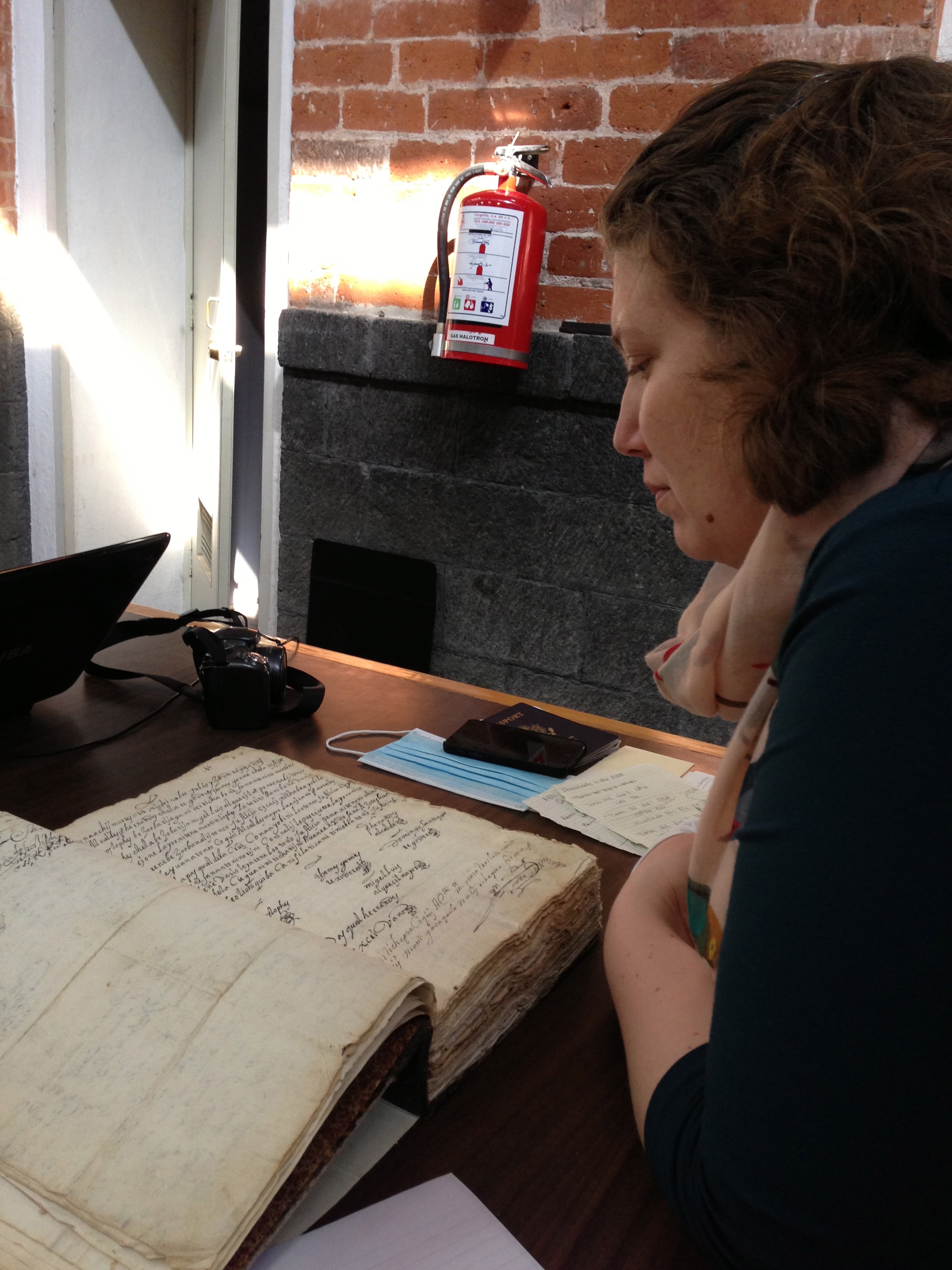
Brook Danielle Lillehaugen is Associate Professor of Linguistics at Haverford College. She received her Ph.D. in linguistics from the University of California, Los Angeles in 2006 and has been working on colonial and modern Valley Zapotec since 1999. She publishes on the grammar of Zapotec in both its modern and colonial forms, including publications in Language Documentation and Conservation, International Journal of American Linguistics, and Tlalocan. In collaboration with Zapotec speakers, other linguists, and the Living Tongues Institute for Endangered Languages, she is developing online Talking Dictionaries for several Valley Zapotec language varieties. Her work has been supported by the NSF, NEH, and the ACLS. She was awarded the 2018 Ernest A. Lynton Faculty Award for the Scholarship of Engagement for Early Career Faculty.
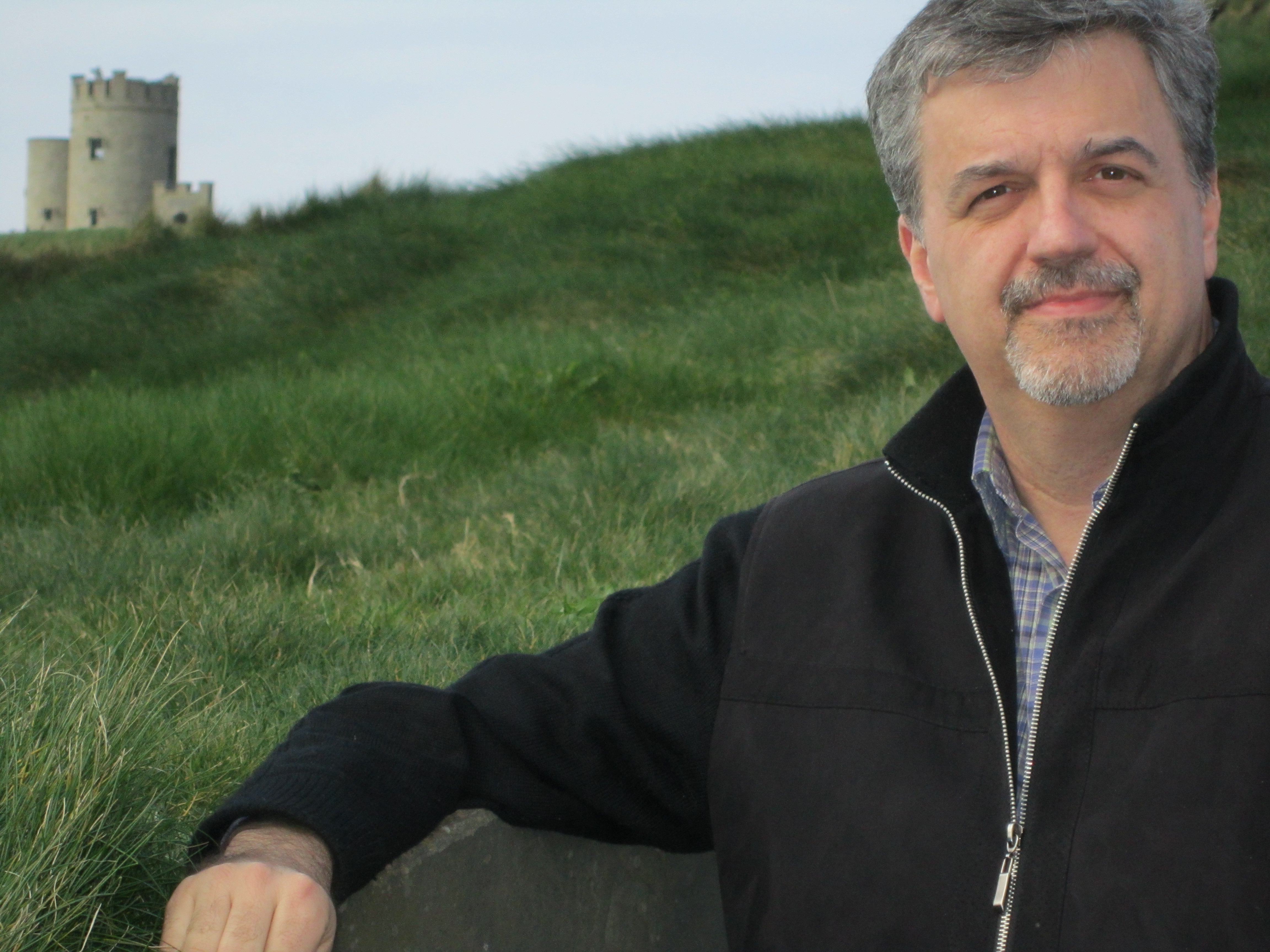
George Aaron Broadwell is Elling Eide Professor of Anthropology at University of Florida. His research focuses on the documentation of Native American languages, particularly in the southeastern United States and Oaxaca, Mexico. He has worked with Zapotec languages since 1989, with research on three modern varieties (Santa Ana del Valle, San Dionisio Ocotepec, and Macuiltianguis) as well as Colonial Valley Zapotec materials. He is the author of numerous publications on Zapotec and also author/editor of A Choctaw Reference Grammar; The origin of the sun and moon: A Copala Triqui legend; and Nana naguan' rihaan nij sii chihaan': Words of counsel for the Triqui people.

Michel Oudijk is an historian and philologist whose main interest is Zapotec historiography and its relationship to present day communities. Since 1992 he has worked in three of the four main Zapotec regions and is renowned for his analysis of pictographic and alphabetic documents alike, relating historical information to present day landscapes and oral tradition. His work on the indigenous participation in the "Spanish" conquest of Mexico has opened up a whole new field of study called the New Conquest History. In 2000 he received his Ph.D. at Leiden University, after which he worked for a year in the National Archives of the Indies in Seville, Spain. Since 2004 he has been a researcher at the Institute of Philological Studies at the Universidad Nacional Autónoma de México (the National Autonomous University of Mexico). He has published 11 books and over 50 articles and chapters in journals and volumes all over the world, and is a well-known speaker at international academic meetings and in local indigenous community events.
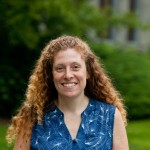
Laurie Allen is the Director for Digital Scholarship at the University of Pennsylvania Libraries. She and her colleagues collaborate on new forms of scholarship to support campus-wide open access publishing, data curation & management, digital humanities, and mapping and geospatial data efforts. A native Philadelphian, she also serves as Research Director for Monument Lab, a public art and civic research project in Philadelphia. In late 2016, Allen and colleagues in the Penn Libraries helped start Data Refuge by teaming up with the Penn Program in Environmental Humanities in an effort to help protect copies of federal environmental and climate data. Before joining the Penn Libraries, Laurie was the Coordinator for Digital Scholarship and Research at Haverford College. She holds a Bachelor's degree in Philosophy from Bard College, and a Master's of Library and Information Science from Simmons College.

Michael Zarafonetis is Coordinator for Digital Scholarship and Services for Haverford College Libraries. He earned a Bachelor's degree in Computer Science from Kalamazoo College and a Ph.D. in History from Auburn University. He designed and developed web exhibits at the Hagley Museum and Library in Wilmington, Delaware before coming to Haverford. Since 2011, Mike has supported faculty, staff, and students in the planning, design, and development of digital scholarship projects. These projects incorporate techniques like GIS mapping, data visualization, machine learning, and text encoding and analysis. In addition to course support and exhibit design, Mike has developed curriculum for the Digital Scholarship Fellows program at Haverford, and teaches in the Museum Studies graduate program at the University of Delaware.
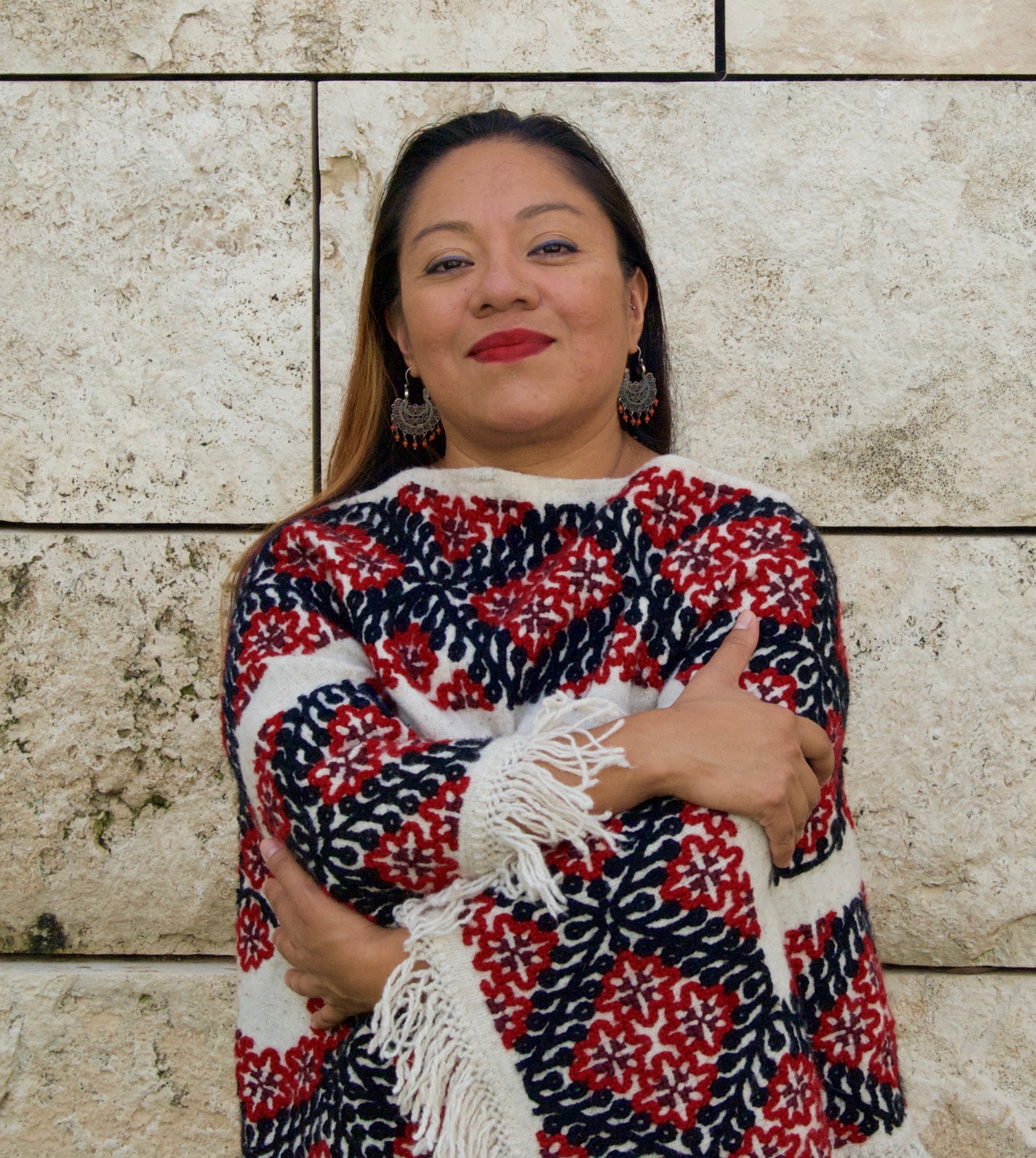
Xóchitl Flores-Marcial is an Assistant Professor in the Department of Chicana/o Studies at California State University, Northridge. Her book project, A History of Guelaguetza in Zapotec Communities of the Central Valleys of Oaxaca, traces the evolution of Guelaguetza as a Mesoamerican social network of collaboration and exchange from the pre-Columbian period to the present. Her scholarly projects are centered on Zapotec History, Zapotec Diaspora in the US, Mesoamerican Societies, Oaxacan Indigenous Languages, Urban Indigenous Peoples, Digital Humanities, and Ethnic Studies. Flores-Marcial was the principal consultant for production and development of the internationally acclaimed Pacific Standard Time: LA/LA exhibit Visualizing Language: Oaxaca in LA (2017-2018). She is a member of the transnational Zapotec community of Oaxacalifornia.
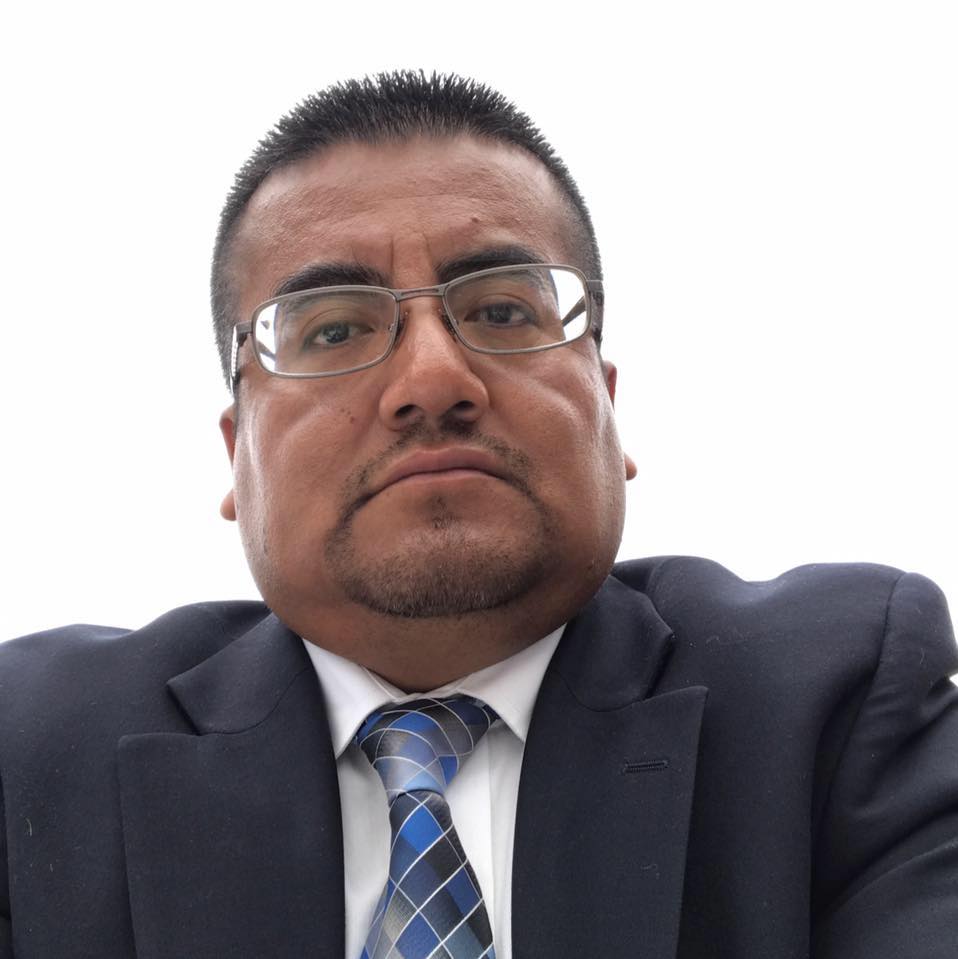
Moisés García Guzmán was born in Tlacochahuaya, Oaxaca, Mexico, and is a native speaker of Valley Zapotec. He serves as the Secretary of Culture in Tlacochahuaya and teaches English to high school students at CETIs #124 in Tlacolula. He received his bachelor’s degree in 1999 from The Technological Institute of Oaxaca (Mexico), after which he moved to California, where he received his TOEFL certification. It was during this time that he became a Zapotec language activist. He works to raise awareness of the importance of language preservation as an element of cultural identity in the state of Oaxaca. He has a digital language campaign on Twitter (@bnzunni) and recently co-produced the multilingual documentary web series Dizhsa Nabani – Living Language (https://www.youtube.com/DizhsaNabani).
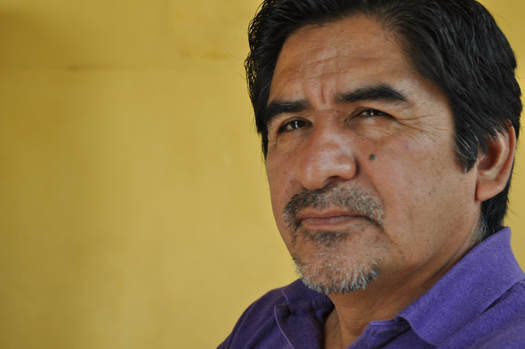
Felipe H. Lopez is a postdoctoral scholar in the Department of Literature at the University of California, San Diego. He is originally from the Zapotec town of San Lucas Quiaviní, Oaxaca. At the age of 16 he migrated to Los Angeles, California, speaking no English and little Spanish. By 2007 he had earned his Ph.D. from UCLA in urban planning, with research focusing on Mexican indigenous issues on both sides of the border. He is co-author of a trilingual Zapotec-Spanish-English dictionary (Munro & Lopez et al. 1999) and has taught Zapotec language classes at UCLA and UCSD using a textbook which he also co-authored (Munro et al. 2008). His Zapotec poetry can be found in the Latin American Literary Review, The Acentos Review, and Latin American Literature Today. His Zapotec short story Liaza chaa ‘I am going home’ was awarded the 2017 Premios CaSa prize, an annual competition for the creation of literature in Zapotec, and was published in Latin American Literature Today.

Ian Davis is a Psychology major and Chinese Language minor at Haverford College. Motivated by his own experience in Oaxaca during a gap year, he hopes to promote Ticha's use by educators.

Collin Kawan-Hemler is a prospective History major and Spanish minor. He looks forward to learning and practicing more about archival access and historical education for popular audiences.

Tomas Paris is a computer science major and linguistics minor helping web development in Ticha. He is interested in web design and the documentation and preservation of manuscripts.

Eloise Kadlecek is an intended Linguistics major and Spanish minor. An interest in language preservation and indigenous languages piqued her interest in joining the Ticha team. She has been part of the Ticha team since May 2019.
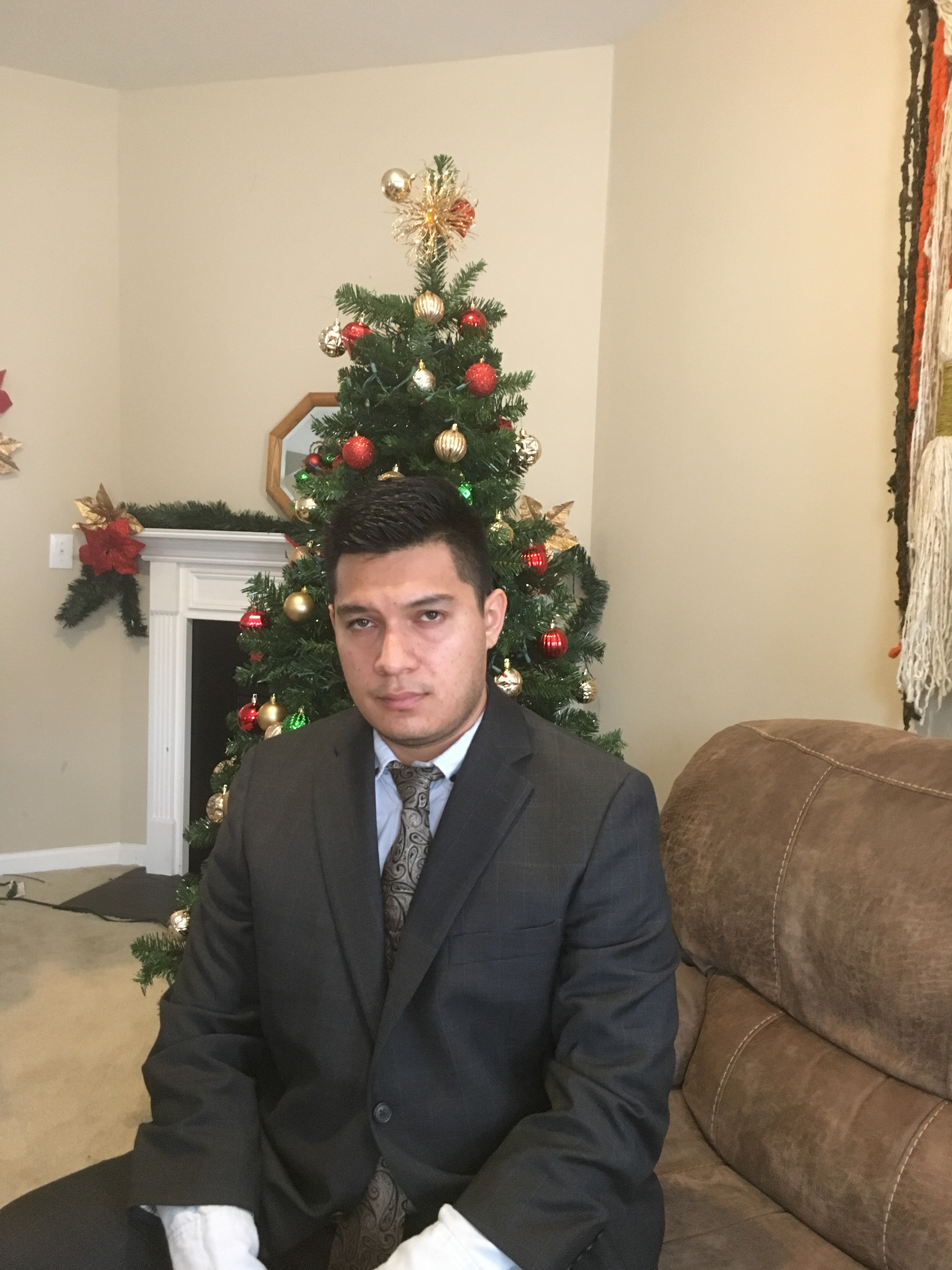
Felipe Acosta-Muñoz, University of Florida, Graduate Research Assistant, earned an MA in Linguistic Anthropology in 2015. He is working on a Ph.D. on indigenous language revitalization in Mexico

Emily Lin is a linguistics and computer science double major working on Ticha's front-end and back-end code. She is particularly interested in using technology to increase accessibility and cultural interaction.
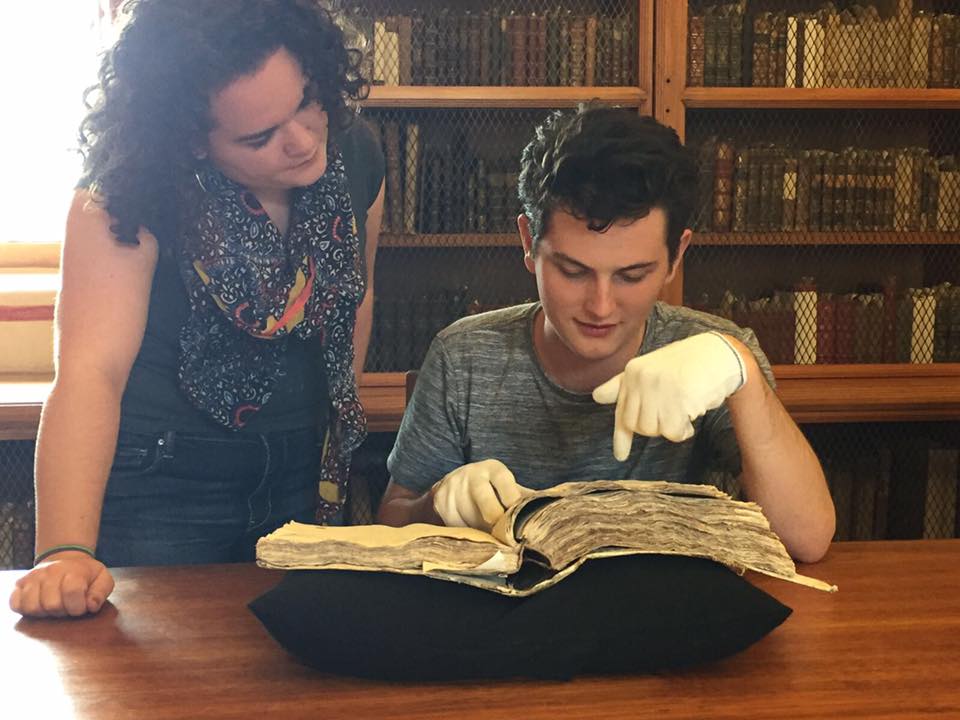
Conor Stuart Roe is also a linguistics and computer science double major at Haverford College. He works with Mike and Ian in Digital Scholarship to build and maintain the Ticha site and has participated as a linguistics student in the research of Colonial Valley Zapotec.
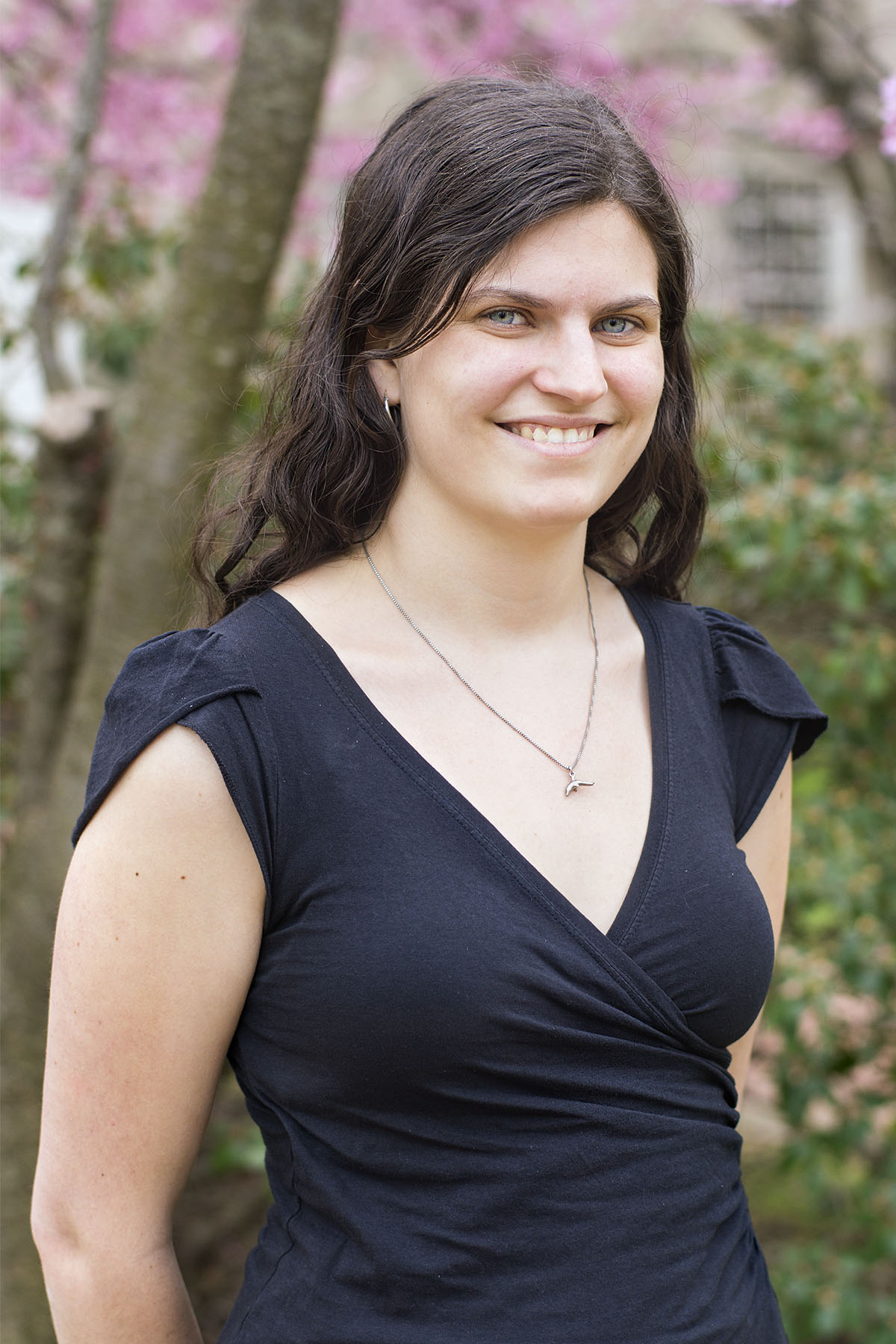
May Helena Plumb is a linguistics graduate student at the University of Texas at Austin. She received her B.A. in linguistics from Haverford College in 2016, where she wrote a thesis on conjunction in Colonial Valley Zapotec. As part of Ticha, she has worked on many projects, including the digitization of Zapotec manuscripts and the transcription and XML-encoding of Cordova's Arte
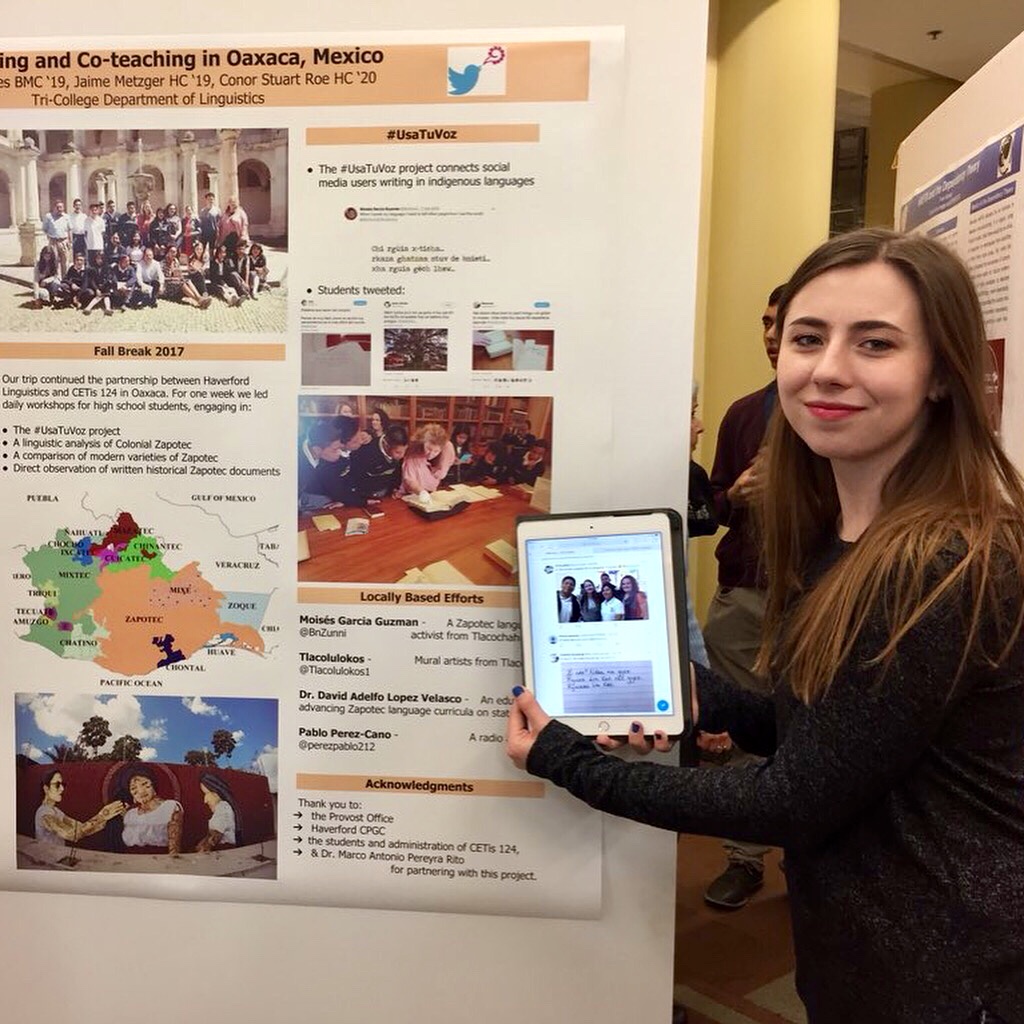
Jaime Metzger is a linguistics and Spanish major at Haverford College. Thanks to the Sara T. Slocum 1998 and Joshua Slocum Digital Scholarship Fund, she is working with Mike and Emily to increase Ticha’s functionality and accessibility. For her thesis research project, she uses Ticha’s resources to analyze the language contact effects of Colonial Valley Zapotec on Oaxacan Spanish.

Ian Fisher is a linguistics and computer science major at Haverford College. He works on the front-end and back-end code for the Ticha website.
- Tomas Paris
- Conor Stuart Roe